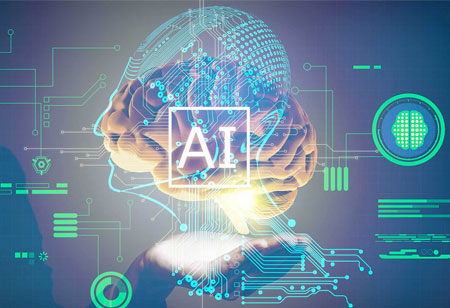THANK YOU FOR SUBSCRIBING
AI is set to change the course of the international B2B and B2C market
Dynamic pricing science, driven by algorithms and context-aware, machine-guided learning, enables companies to deliver tailored solutions to customers on time and at the right price.

By
Apac CIOOutlook | Thursday, January 01, 1970
Stay ahead of the industry with exclusive feature stories on the top companies, expert insights and the latest news delivered straight to your inbox. Subscribe today.
For businesses and organizations in this new age of automated commerce and digital world, constructing a seamless, personalized customer experience has become a top priority, with a majority of them turning to artificial intelligence (AI) to accommodate the transition. For example, SoftBank Mobile has launched its humanoid robot, Pepper, qualified for interacting with customers who visit the store. Pepper can recognize faces, speak, listen and respond to people just like one experiences a human-to-human conversation. Leveraging AI via chatbots, other companies are going the distance to help improve and increase customer experiences across different channels. Another similar instance of AI-powered development was when Progressive recently launched a “Flo” chatbot on Facebook Messenger—a chatbot designed to enhance customer engagement with the brand.
With the B2C industry witnessing the full-scale infiltration of companies using AI to increase customer interactions, the B2B division is also immensely benefiting from the implementation of the technology, primarily, to improve and increase its margins. Besides, Gartner has predicted that by 2020, more than 30 percent of the international market B2B companies will be using AI to augment at least one of their primary sales processes. A recent launch of the Monet emphasizes this course of action, an artificial intelligence analyst, delivering data science-driven insights in all PROS solutions, commencing with Opportunity Detection. Monet implements machine-learning algorithms to customer data and continues to evolve and learn based on user feedback. As a result, “she” can anticipate the next best action and personalize well-determined recommendations for each customer, presenting them with swift, precise and consistent purchasing experiences.
There are numerous areas where one can witness the rise of AI implementation to gain the best out of consumer interactions and purchases.
Dynamic pricing science, driven by algorithms and context-aware, machine-guided learning, enables companies to deliver tailored solutions to customers on time and at the right price. Companies that implement and harness dynamic pricing can derive actionable insights and reports on product pricing based on market factors. Also, generating up-to-date, accurate pricing for customers will improve their consumer loyalty.
Personalization is the key to success for a product sale. Personalized offers and identifying the right opportunities to approach customers with new deals are the some of the critical features required to make a successful purchase. Companies can then take this insight to create more strategic cross-sell opportunities and personalized offers.
Response Time is immensely crucial to keep the consumers interested in the products. "Time-to-quote" plays a significant part when it comes to customer engagement, helping the sales team to gain accuracy of their quotes and secure the market deals.
These approaches, implementing AI technology into the B2B market, can also generate results across channels, with increasing customer loyalty, identifying new sales opportunities or boosting profit margins.





